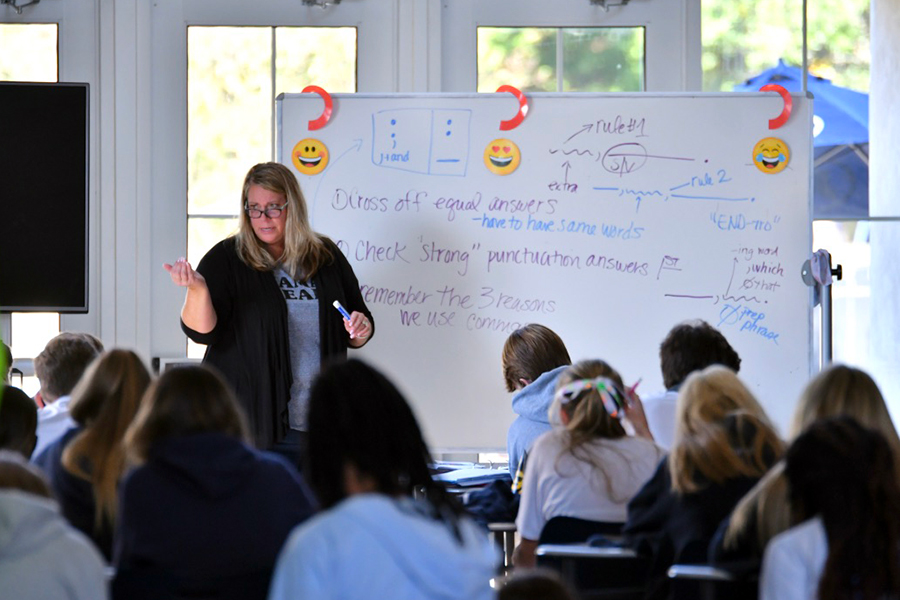


November 9 through 13, Jen Henson led an intense, five-day ACT preparation boot camp for Jackson Academy’s junior class. With 22 years of experience as a high school English teacher and nearly ten years owning her ACT coaching company, Goal Digger, Henson’s work equipped students with a detailed map to increasing their scores and potentially locking in more competitive scholarships. During a break in her day, we sat down with Henson and asked for her top three tips on how parents can help their children prepare to perform their best on the test.
- Encourage Reading In Henson’s experience, the reading section of the ACT is a troublesome portion for many students. This area of the test is one that parents can help their children prepare for early. Studies show that students who grow up with books in their home develop stronger literacy. “Parents can encourage reading in their children – it doesn’t matter what the students are reading,” Henson said. “It doesn’t have to be the classics.” Helping students find books that interest them is a great way to support their preparations for the ACT. “To be reading and have some vocabulary knowledge naturally as a part of reading and to feel comfortable reading – that is so important.”
- Help Provide Practice Opportunities “As parents, we support our kids by taking them to ball practices and ballet practices, and we help our children learn to drive, and then we take them to the ACT for the first time, and we just throw them in there,” Henson observed. Like strength and conditioning to prepare for athletic competition, helping students take practice tests or attend workshops is a second way parents can participate in their students’ preparation for the ACT. “If they’ve seen it or they’ve done something to prepare, that exposure to the test before taking it when it counts is significant.”
- Test Early, Often, and Persistently “Nobody wants to step on a scale when you start a diet, but you may need to know that starting point so that you can feel success,” Henson said with a chuckle. In her coaching business, Henson encourages students to not wait until their junior year to begin taking the ACT. By testing early, even if it’s a mock test taken at home, students and their parents can establish a baseline and plan to improve their scores, reducing the pressure of achieving a specific score on a tight schedule during junior or senior year. Persisting in taking the test and putting in work to improve between tests is another of Henson’s recommendations. Once students know their baseline, their time in studying and practicing between tests often leads to higher scores.

Jen Henson’s ACT boot camp lasted for five days, and her subject-matter expertise doubtlessly benefitted students. Parents have the opportunity to support their students’ performance on the ACT 365 days of the year by modeling and encouraging a love of books, helping students practice for the ACT, and supporting them in testing early and often.


